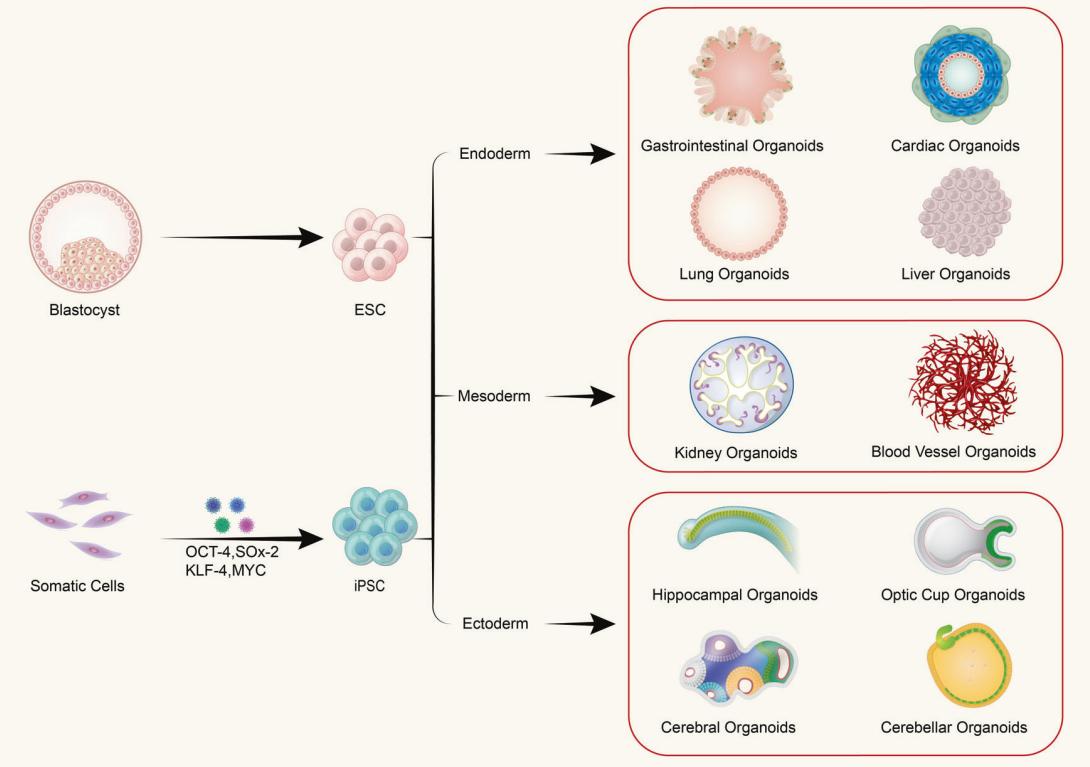- You are here: Home
- Applications
- 3D Spheroid & Organoid Culture
- Organoid Platform for Drug Development
- Organoid Models
Applications
-
Cell Services
- Cell Line Authentication
- Cell Surface Marker Validation Service
-
Cell Line Testing and Assays
- Toxicology Assay
- Drug-Resistant Cell Models
- Cell Viability Assays
- Cell Proliferation Assays
- Cell Migration Assays
- Soft Agar Colony Formation Assay Service
- SRB Assay
- Cell Apoptosis Assays
- Cell Cycle Assays
- Cell Angiogenesis Assays
- DNA/RNA Extraction
- Custom Cell & Tissue Lysate Service
- Cellular Phosphorylation Assays
- Stability Testing
- Sterility Testing
- Endotoxin Detection and Removal
- Phagocytosis Assays
- Cell-Based Screening and Profiling Services
- 3D-Based Services
- Custom Cell Services
- Cell-based LNP Evaluation
-
Stem Cell Research
- iPSC Generation
- iPSC Characterization
-
iPSC Differentiation
- Neural Stem Cells Differentiation Service from iPSC
- Astrocyte Differentiation Service from iPSC
- Retinal Pigment Epithelium (RPE) Differentiation Service from iPSC
- Cardiomyocyte Differentiation Service from iPSC
- T Cell, NK Cell Differentiation Service from iPSC
- Hepatocyte Differentiation Service from iPSC
- Beta Cell Differentiation Service from iPSC
- Brain Organoid Differentiation Service from iPSC
- Cardiac Organoid Differentiation Service from iPSC
- Kidney Organoid Differentiation Service from iPSC
- GABAnergic Neuron Differentiation Service from iPSC
- Undifferentiated iPSC Detection
- iPSC Gene Editing
- iPSC Expanding Service
- MSC Services
- Stem Cell Assay Development and Screening
- Cell Immortalization
-
ISH/FISH Services
- In Situ Hybridization (ISH) & RNAscope Service
- Fluorescent In Situ Hybridization
- FISH Probe Design, Synthesis and Testing Service
-
FISH Applications
- Multicolor FISH (M-FISH) Analysis
- Chromosome Analysis of ES and iPS Cells
- RNA FISH in Plant Service
- Mouse Model and PDX Analysis (FISH)
- Cell Transplantation Analysis (FISH)
- In Situ Detection of CAR-T Cells & Oncolytic Viruses
- CAR-T/CAR-NK Target Assessment Service (ISH)
- ImmunoFISH Analysis (FISH+IHC)
- Splice Variant Analysis (FISH)
- Telomere Length Analysis (Q-FISH)
- Telomere Length Analysis (qPCR assay)
- FISH Analysis of Microorganisms
- Neoplasms FISH Analysis
- CARD-FISH for Environmental Microorganisms (FISH)
- FISH Quality Control Services
- QuantiGene Plex Assay
- Circulating Tumor Cell (CTC) FISH
- mtRNA Analysis (FISH)
- In Situ Detection of Chemokines/Cytokines
- In Situ Detection of Virus
- Transgene Mapping (FISH)
- Transgene Mapping (Locus Amplification & Sequencing)
- Stable Cell Line Genetic Stability Testing
- Genetic Stability Testing (Locus Amplification & Sequencing + ddPCR)
- Clonality Analysis Service (FISH)
- Karyotyping (G-banded) Service
- Animal Chromosome Analysis (G-banded) Service
- I-FISH Service
- AAV Biodistribution Analysis (RNA ISH)
- Molecular Karyotyping (aCGH)
- Droplet Digital PCR (ddPCR) Service
- Digital ISH Image Quantification and Statistical Analysis
- SCE (Sister Chromatid Exchange) Analysis
- Biosample Services
- Histology Services
- Exosome Research Services
- In Vitro DMPK Services
-
In Vivo DMPK Services
- Pharmacokinetic and Toxicokinetic
- PK/PD Biomarker Analysis
- Bioavailability and Bioequivalence
- Bioanalytical Package
- Metabolite Profiling and Identification
- In Vivo Toxicity Study
- Mass Balance, Excretion and Expired Air Collection
- Administration Routes and Biofluid Sampling
- Quantitative Tissue Distribution
- Target Tissue Exposure
- In Vivo Blood-Brain-Barrier Assay
- Drug Toxicity Services
Organoid Models
Creative Bioarray offers state-of-the-art organoid models that facilitate groundbreaking research in drug discovery, disease modeling, and regenerative medicine. These 3D culture systems replicate the architecture and functionality of human tissues, providing data that is more physiologically relevant than traditional 2D cultures.
- Patient-Derived Cancer Organoids (PDCOs)
Patient-Derived Cancer Organoids (PDCOs) are cultured from patient tumor tissues and replicate the genetic, phenotypic, and functional characteristics of the original tumors. This technology enables the development of in vitro models that closely mimic individual patient cancers, offering a powerful tool for personalized medicine and cancer research.
 Figure 1. Construction of living PDCO biobank with clinical and genomic information. [1]
Figure 1. Construction of living PDCO biobank with clinical and genomic information. [1]
- Patient-Derived Xenografts Organoids (PDXOs)
Patient-Derived Xenograft Organoids (PDXOs) combine the benefits of patient-derived xenografts (PDXs) and organoid technology. PDXs are tumors that are directly transplanted from patients into immunocompromised mice, preserving the histological and molecular characteristics of the original tumors.
 Figure 2. Establishment of PDXOs that reflect phenotypic and transcriptomic profiles of matching PDX and patient tumors. [2]
Figure 2. Establishment of PDXOs that reflect phenotypic and transcriptomic profiles of matching PDX and patient tumors. [2]
- Pluripotent Stem Cell (PSC)-Derived Organoids
Pluripotent stem cell (PSC)-derived organoids closely mimic the architecture and function of real organs. These organoids are generated from PSCs, which include embryonic stem cells (ESCs) and induced pluripotent stem cells (iPSCs). PSCs can differentiate into any cell type, enabling the creation of a diverse range of organoid models for research, drug development, and disease modeling.
 Figure 3. Schematic of the different organoids that can be derived from PSCs.[3]
Figure 3. Schematic of the different organoids that can be derived from PSCs.[3]
Creative Bioarray has introduced a variety of disease organoid models to advance research in drug discovery, disease modeling, and regenerative medicine.
- Breast Organoids
- Cerebral Organoids
- Cholangiocarcinoma Organoids
- Colorectal Organoids
- Liver Organoids
- Lung Organoids
References
- Bae, JuneSung et al. "The Patient-Derived Cancer Organoids: Promises and Challenges as Platforms for Cancer Discovery." Cancers vol. 14,9 2144. 25 Apr. 2022, doi:10.3390/cancers14092144
- Van Hemelryk, Annelies et al. "Patient-Derived Xenografts and Organoids Recapitulate Castration-Resistant Prostate Cancer with Sustained Androgen Receptor Signaling." Cells vol. 11,22 3632. 16 Nov. 2022, doi:10.3390/cells11223632
- Tang, Xiao-Yan et al. "Human organoids in basic research and clinical applications." Signal transduction and targeted therapy vol. 7,1 168. 24 May. 2022, doi:10.1038/s41392-022-01024-9
Explore Other Options
For research use only. Not for any other purpose.

